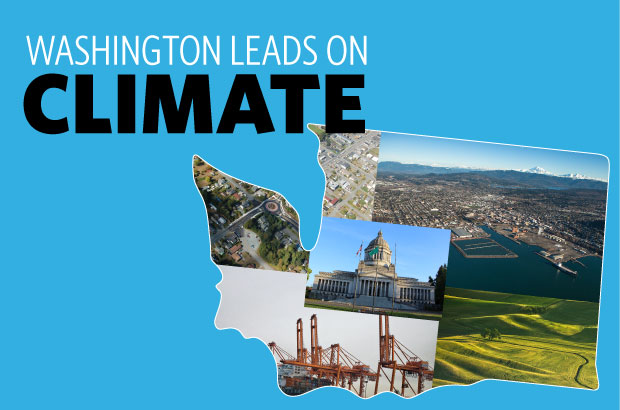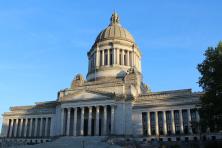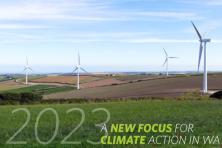Our state made history by passing the strongest bill in the country to cap carbon pollution statewide. Washington is the second state to pass an economy-wide cap on climate pollution, and the very first to commit to cutting those emissions by 95%—one of the most ambitious binding targets in the world. Plus investments resulting from the Climate Commitment Act (CCA) will go directly to communities who need it most; will make clean energy and clean transportation more affordable and accessible; and will create new jobs in new sectors like transportation electrification, clean buildings, and more.
State agencies are starting the implementation process with a comment period on the draft rules ending this Friday July 15th. You can add your voice to influence this groundbreaking climate policy and let the Department of Ecology know what’s important to you.
What will the Climate Commitment Act do?
- Incentivize cutting pollution: Once the program is up and running on January 1, 2023, Washington will have the strongest statewide cap on global warming pollution, covering 75% of all greenhouse gas emissions in the state.
- Invest in clean energy and clean transportation: Our Legislature has already dedicated $5.4 billion from CCA-generated revenue to cut transportation pollution; most supporting transit, bike and pedestrian infrastructure, as well as electrifying our transportation sector. Over the next several decades, we will see billions of dollars invested directly in our communities, cleaning up our air and making clean energy solutions accessible for everyone.
- Ensure overburdened communities benefit: At least 35% of overall investments will go directly to benefit overburdened communities, 10% will be dedicated to projects sponsored by tribal nations, and $250 million will aid in relocating tribal communities threatened by sea level rise.
With last week's U.S. Supreme Court decision limiting the EPA's power to regulate carbon dioxide emissions, it is now more important than ever for states and local jurisdictions to move decisively to address climate pollution across the economy. With your help, we can ensure the Climate Commitment Act will be transformational in reducing pollution and generating unprecedented levels of investments that will benefit our communities and accelerate clean energy solutions far faster than we would see otherwise.
Please send a comment to the WA Department of Ecology today to support strong implementation of the Climate Commitment Act via these steps:
- Go to their public comment form
- Input your contact information and scroll down to the “Your Comment” section
- Use and add the sample content below to your comment
- After you write your comment (short and sweet is fine) hit “Continue” (lower right)
- You’re done. Thank you!
What should your comment say?
Please feel free to copy and paste any of the following content into your comment form and include why climate action is important to you:
Dear Mr. Grice,
Washington made history by passing the country’s strongest law capping carbon pollution, the Climate Commitment Act (CCA). As a resident of the state, I am eager to see the benefits: deep reductions in climate pollution, improved air quality, investments in clean transportation and clean energy, community benefits with investments in overburdened communities, and much more. In order for the CCA to be truly transformational for Washington and act as a model for other states, it is critical that the proposed rule do the following.
CCA rules must maintain the integrity of the cap. The ultimate goal of this law is to achieve our greenhouse gas limits and improve air quality, especially in overburdened communities. Ensuring that emissions do not exceed the cap is critical. When designing program details, maintaining the cap should be one of the primary goals.
CCA investments must prioritize significant improvements in air quality of overburdened communities, especially Black, Indigenous and communities of color. For too long, these communities have borne the brunt of air pollution and climate impacts. The CCA requires that a minimum of 35% of overall investments directly benefit these communities. These investments must be thoughtfully designed with community input to ensure benefits are meaningful.
CCA’s implementation process must collaborate with the Environmental Justice Council and with overburdened communities. The rule should provide more clarity on how the Council and communities will be engaged in the development and implementation of the full program. Ecology should work with the EJ Council to determine the best processes for collaboration.
Thank you for considering my comments.
Sincerely,
(Name)____





